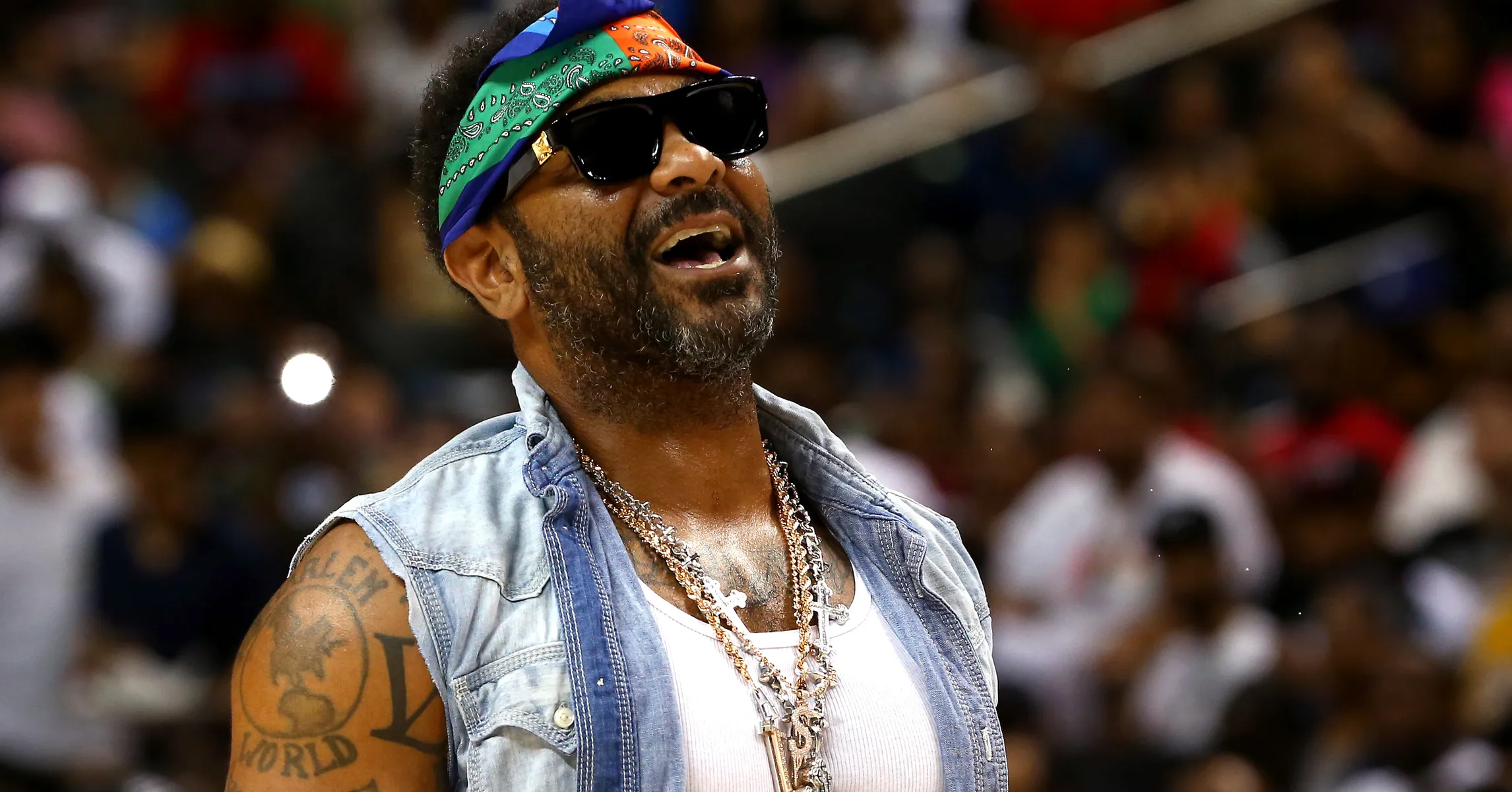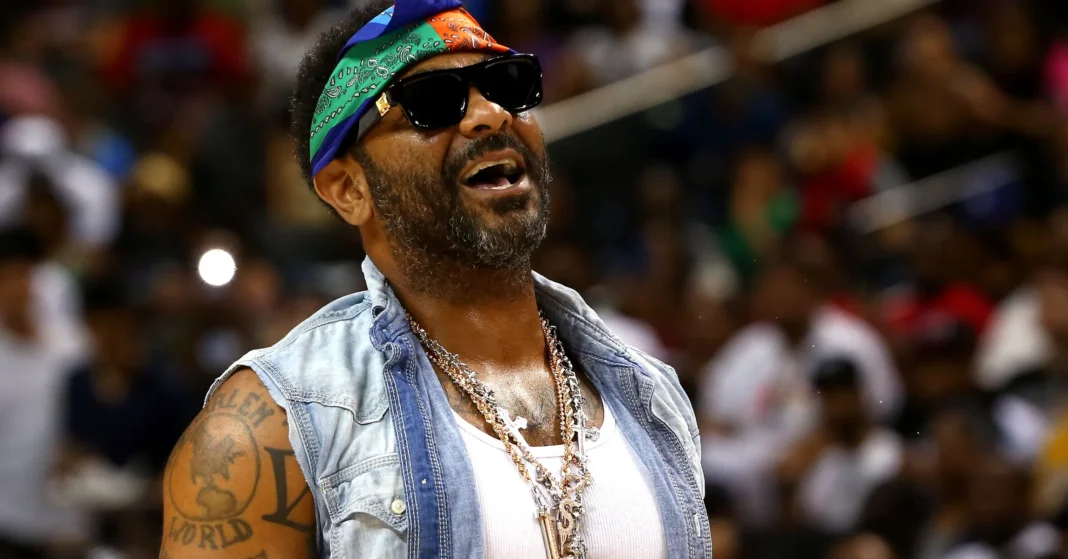## Is Drake the King of “The Culture”?
Hold onto your fedoras, hip-hop heads. Jim Jones, the Dipset general known for his brash rhymes and outspoken personality, recently dropped a bombshell: Drake has done more for hip-hop culture than anyone else.

This controversial claim, splashed across the digital pages of HotNewHipHop, has ignited a firestorm of debate. Is Drake truly the cultural kingpin Jones portrays, or is this just another publicity stunt from the notoriously attention-grabbing rapper? We dissect Jones’ argument, exploring the evidence (and the counter-arguments) to see if Drake truly deserves the crown.
Get ready to dive into the complex world of hip-hop influence, where legacy and impact collide in a battle for the throne.Defending Drake: Jim Jones’ Support for the Toronto Rapper
Jim Jones, a renowned American rapper, has been an avid supporter of Drake, praising the Toronto rapper’s impact on the hip-hop culture. In a recent interview with Way Up With Angela Yee, Jones emphasized Drake’s influence, stating that he has “done more for the culture than anyone else in hip-hop” and is, therefore, the greatest of all time.
Jones highlighted Drake’s ability to change the way people listen to music over the past decade, noting that he has helped numerous top rappers with their careers by collaborating with them on records or touring with them. This sentiment was echoed by Jones in a previous interview, where he referred to Drake’s business dealings as “James Bond-esque” and “taboo,” indicating that the rapper’s willingness to push boundaries and take risks has been a major factor in his success.
The level of support from Jones is significant, as he is a respected figure in the hip-hop industry, having been a part of the Diplomats and collaborating with various artists throughout his career. His endorsement serves as a testament to Drake’s impact on the music industry and his ability to inspire and influence other artists.
The Drake-Kendrick Lamar Beef: Exploring the Complexities
The feud between Drake and Kendrick Lamar has been a topic of discussion in the hip-hop industry for several years. Jones has been outspoken about his support for Drake, defending him against criticism from other artists, including Kendrick Lamar. In a previous interview, Jones referred to the feud as a “beef” and compared it to the criticism faced by Michael Jordan, stating that just as Jordan’s losses did not diminish his status as the greatest basketball player of all time, Drake’s criticisms do not affect his status as the greatest rapper of all time.
The complexity of the feud lies in the fact that both artists have a strong following and are highly respected in the industry. Kendrick Lamar’s lyrics have been seen as a critique of Drake’s rise to fame and his perceived lack of authenticity, while Drake’s response has been seen as a defense of his own music and career. Despite the controversy surrounding the feud, both artists continue to produce music and maintain a strong presence in the industry.
James Bond-esque Moves: Drake’s Taboo Business Deals
Jim Jones has referred to Drake’s business dealings as “James Bond-esque” and “taboo,” indicating that the rapper’s willingness to push boundaries and take risks has been a major factor in his success. Drake’s ability to navigate the music industry and secure lucrative deals has been a subject of interest for many artists and industry professionals.
One notable example of Drake’s business acumen is his lawsuit against Universal Music Group. Jones has defended Drake’s decision to sue the record label, stating that it is a bold move that demonstrates his willingness to challenge the status quo and fight for his rights as an artist. The lawsuit has sparked a conversation about the rights of artists and the role of record labels in the music industry.
Industry Insights: Beyond the Music
Kanye West’s Admission: The Copycat Effect and Drake’s Unmatched Flow
Kanye West has admitted to copying Drake’s flow on numerous occasions, highlighting the impact of the Toronto rapper’s music on the industry. West’s admission serves as a testament to Drake’s ability to innovate and push the boundaries of what is possible in hip-hop.
Drake’s flow has been a subject of interest for many artists and industry professionals, with some praising his unique style and others criticizing him for being too formulaic. Despite the criticism, Drake’s flow remains one of the most recognizable and influential in the industry.
The Broader Implications of Drake’s Influence: Politics, Sports, and Culture
The Impact of Drake’s Success on Politics and Sports
Drake’s success has not been limited to the music industry. His influence has extended into the realms of politics and sports, with many artists and athletes citing him as an inspiration. Drake’s ability to transcend genres and appeal to a wide audience has made him a cultural phenomenon, with implications that extend beyond the music industry.
One notable example of Drake’s influence on politics is his involvement in the 2019 NBA All-Star Game, where he performed alongside other artists and athletes. The event served as a platform for Drake to showcase his music and connect with fans from different backgrounds and industries.
A Cultural Shift: How Drake’s Success Has Redefined Hip-Hop
Drake’s success has marked a significant shift in the hip-hop industry, with many artists and industry professionals citing him as a key influence. His ability to blend different genres and styles has redefined the sound of hip-hop, making it more mainstream and accessible to a wider audience.
The impact of Drake’s success on the music industry has been significant, with many artists and record labels seeking to emulate his formula for success. However, some critics have argued that the commercialization of hip-hop has led to a homogenization of the sound, with many artists sounding too similar to Drake’s style.
Practical Aspects: The Drake Effect on the Music Industry
Record Labels and the Drake Factor: How Deals Are Being Reassessed
The success of Drake has led to a reevaluation of record label deals and the way artists are signed and marketed. Many record labels have sought to emulate Drake’s formula for success, offering larger advances and more favorable contract terms to artists who demonstrate a similar level of commercial appeal.
However, some critics have argued that the increased emphasis on commercial appeal has led to a homogenization of the sound, with many artists being signed based on their potential for commercial success rather than their artistic merit.
The Rise of Independent Artists: Drake’s Impact on the Music Industry’s Business Model
The success of Drake has also led to a rise in independent artists, who are choosing to release their music outside of the traditional record label system. The ease of digital distribution and the rise of social media have made it possible for artists to connect directly with fans and promote their music without the need for a record label.
However, some critics have argued that the rise of independent artists has led to a lack of support for emerging artists, who may struggle to get their music heard and promoted in a crowded industry.
The Importance of Adaptation: How Artists Are Embracing the Drake Effect
The success of Drake has led to a significant shift in the music industry, with many artists and record labels seeking to emulate his formula for success. However, the key to success in the industry is adaptation, with artists needing to be willing to evolve and change their sound in response to changing trends and consumer preferences.
Drake’s ability to adapt and evolve has been a key factor in his success, with the artist continually pushing the boundaries of what is possible in hip-hop and experimenting with new sounds and styles. The importance of adaptation is evident in the way that many artists have responded to the Drake Effect, with some choosing to emulate his style and others opting to pursue a more unique and innovative sound.
Conclusion
Conclusion:
The thought-provoking article by Jim Jones on HotNewHipHop, where he argues that Drake has done more for the culture than anyone else, sparks a multitude of perspectives and reflections. Key points discussed in the article include Drake’s unparalleled ability to push boundaries, his commitment to amplifying marginalized voices, and his trailblazing approach to entrepreneurship. Jones emphasizes that Drake’s impact transcends music, influencing fashion, art, and social justice, cementing his status as a cultural icon of our time.
The significance of this topic lies in its emphasis on the multifaceted nature of cultural impact. By reevaluating the conventional metrics of success, the article encourages readers to consider the far-reaching consequences of artistic expression and the profound effects it can have on society. Moreover, this narrative highlights the importance of acknowledging and celebrating the contributions of artists like Drake, who are often at the forefront of driving cultural evolution.
As we look to the future, it’s essential to recognize that the cultural landscape will continue to shift and evolve, driven by visionary artists and innovators. The legacy of figures like Drake will undoubtedly serve as a blueprint for future generations, inspiring new waves of creatives to push the boundaries of what’s possible. Ultimately, the article leaves us with a profound question: What will be the lasting impact of our current cultural moment, and who will be the next trailblazers to leave an indelible mark on our collective history?
